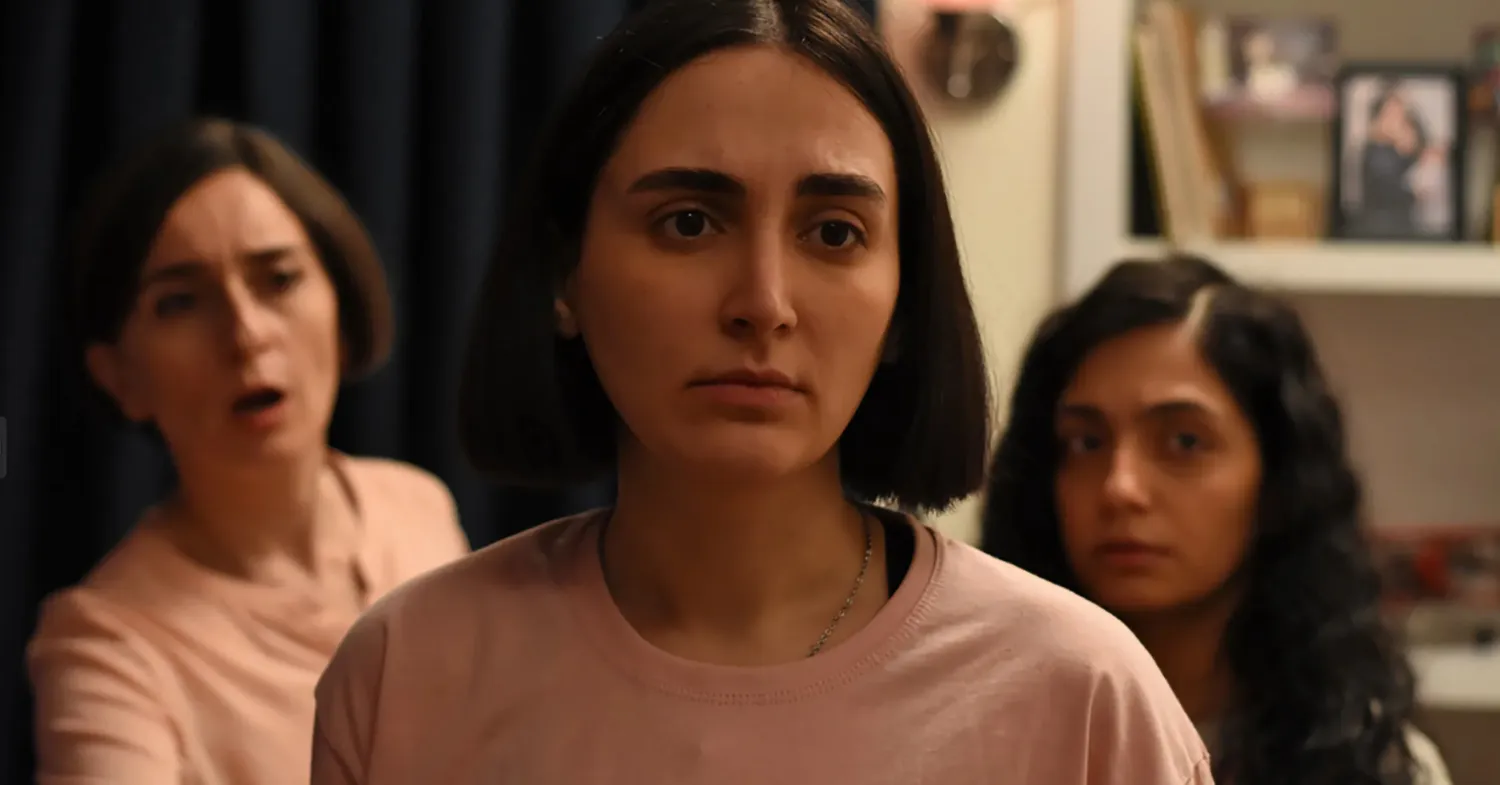The Seed of the Sacred Fig, winner of the 2024 Cannes Special Jury Prize, stands out as a top international feature film of the year. The story spans multiple genres, evolving significantly as it unfolds. The movie captures modern-day Iran during heightened tensions between citizens and the government, blending family drama with a tense, high-stakes thriller. Director Mohammad Rasoulof handles ambitious themes, and the film’s extended runtime and detailed storytelling bring cohesion to its complex ideas.

The oppressive grip of Iran’s government is embodied in Iman (Misagh Zare), a well-meaning family man placed under immense strain after a career promotion. As an investigative judge, Iman must enforce sentences for newly imprisoned citizens. This role becomes overwhelming during the Mahsa Amini protests, with hundreds of cases awaiting action.
Iman faces intense pressure from his superiors to approve the convictions handed down by prosecutors. Many involve violent punishments, with some including death sentences. Iman recognizes he has been placed in this role to serve as a tool for the government, but he gives in to the demands and begins carrying out their orders.
Due to cultural norms, Iman’s family remains unaware of his exact responsibilities. They follow news of the protests through their usual sources. His wife, Najmeh (Soheila Golestani), watches updates on local news channels, while his daughters, Rezvan (Mahsa Rostami) and Sana (Setareh Maleki), hear about the events firsthand from friends and social media. Their friend Sadaf (Niousha Akhshi) is shot during a demonstration, which deepens the daughters’ empathy for the protesters and sharpens their criticism of those in power.
This tension drives the plot of The Seed of the Sacred Fig. Iman and his family receive a gun for protection, but it soon goes missing. Iman becomes increasingly paranoid, even doubting his own family. His desperation to locate the gun leads to several intense moments and an unforgettable final hour.
The film delves deeply into the extremes people in power will go to in order to maintain control, even as paranoia and isolation consume them. Iman, granted entry into the inner circle of judicial authority in Iran, begins to wield his power recklessly. At the same time, he suspects those closest to him of undermining his authority and bruising his ego. Convinced he is being manipulated, Iman stops at nothing to assert his dominance and prove his worth.
The Seed of the Sacred Fig runs for 167 minutes, and its length becomes noticeable in the third act. While the pace slows to focus on Iman’s extreme efforts to control his family, the film avoids feeling exhausting. The slower moments emphasize the gravity of Iman’s actions, and the transition from historical family drama to intense thriller is highly effective.
Director Mohammad Rasoulof, charged with crimes against the Iranian government for this film before fleeing to Germany, carefully paces the story. He dedicates a significant portion to exploring Iman’s family, giving the audience a clear sense of their dynamics and struggles—even as Iman himself is often absent from home.
This is to say that Iman appears infrequently in the expository sections of The Seed of the Sacred Fig. Instead, the focus shifts to the rest of his family. His prolonged absence creates a growing sense of distance, allowing viewers to empathize deeply with his wife and daughters. This perspective makes it easier to align with their socio-political beliefs, as the demonstrations are shown entirely through their eyes.
The film rarely leaves the family’s middle-class apartment. When it does, the scenes are brief, set in cars or small family-owned shops. This limited scope heightens the sense of isolation. As Iman stays away for extended periods, his paranoia grows. By the time he returns, he is convinced that his family has turned against both him and the government he serves.
For someone unfamiliar with the details of Iran during the Mahsa Amini protests and the broader unrest in the country, The Seed of the Sacred Fig is both informative and gripping. It immerses you in the tense, restricted world Najmeh, Rezvan, and Sana inhabit, where they have virtually no power to express their views on societal issues.
READ MORE MOVIE REVIEWS: Small Things Like These, Carry-On, Nightbitch
Director Mohammad Rasoulof takes a deliberate approach, using the heightened runtime and measured pacing to full effect. The result is a powerful and rewarding experience that captures the oppressive atmosphere and the personal struggles of its characters.
Score: 7/10
The Seed of the Sacred Fig (2024)
- Cast: Misagh Zare, Soheila Golestani, Mahsa Rostami, Setareh Maleki, Niousha Akhshi
- Director: Mohammad Rasoulof
- Genre: Drama, Thriller
- Runtime: 167 minutes
- Rated: PG-13
- Release Date: November 27, 2024
- Read about The Seed of the Sacred Fig (2024) on Wikipedia and IMDb
